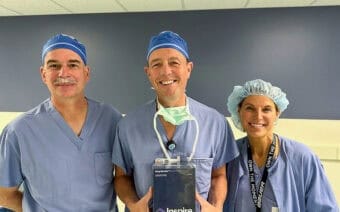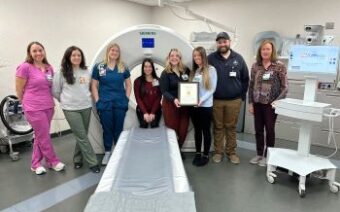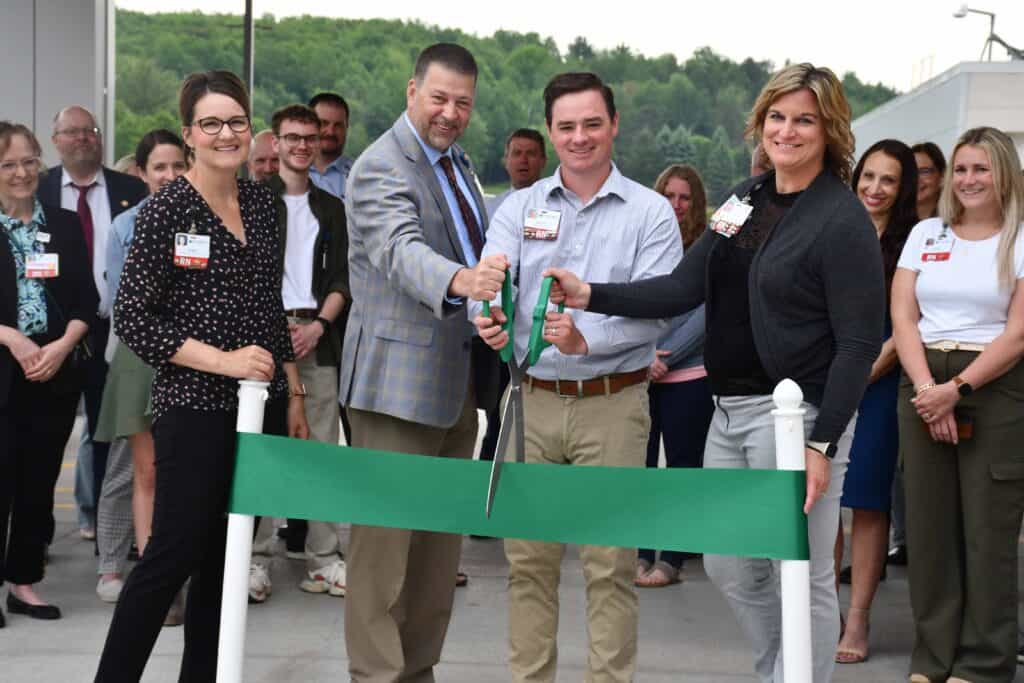
July 7, 2025
WAUSAU – Aspirus Wausau Hospital recently opened its new and improved Emergency Department (ED) – completing an expansion project roughly half a decade in the making.
Mason Lucca, nursing director for the Aspirus Wausau Hospital, said ED leadership knew the need for emergent and urgent care was on the rise in the North Central region even before the COVID-19 pandemic.
“This has been a project for five or six years,” he said. “The planning process [started] prior to COVID, and we knew we needed to grow along with our community. I think one of our values here is foresight, and I think [this project was] a great example of it [in action].”
Lucca said in its initial stages prior to the pandemic, the “project took off.”
“Then COVID hit, and the world was flipped upside down for a little while,” he said. “So, we paused, just not knowing what health care was going to do at that point. Then once we got through the thick of it, we started kicking back off – dusting off the floor plans and all the project plans we had for the unit, knowing we still needed to expand at that point and eventually get back to a new normal.”
The ED expansion’s construction phase, Lucca said, was completed over the “past couple of years,” with its planning phase occurring even a “couple years prior to that.”
“In short, it’s been a long time coming,” he said.
Prioritizing patient care
Determining by how much to expand the hospital’s ED and its services, Lucca said, was a data-driven decision.
“There’s a lot of data behind [stats like] room turnovers for emergency visits, the number of people you see and what the averages are for the number of beds you need for the census and the population you have,” he said. “Our business analytics team helps tremendously with that to help give us a good foresight [into] what the projections would be based off of those turnover rates.”
Prior to COVID, Lucca said trends in health care pointed to a decreased need for inpatient services.
“I think health care is ever changing, and prior to COVID, they focused on [the idea] that hospitals weren’t going to need to grow as much because there’d be a lot more outpatient services,” he said. “But then, when COVID hit, it shifted everything back to the hospital.”
As patients fell ill to the point of needing hospitalization, Lucca said local and national EDs and healthcare facilities responded to the skyrocketing need for inpatient care.
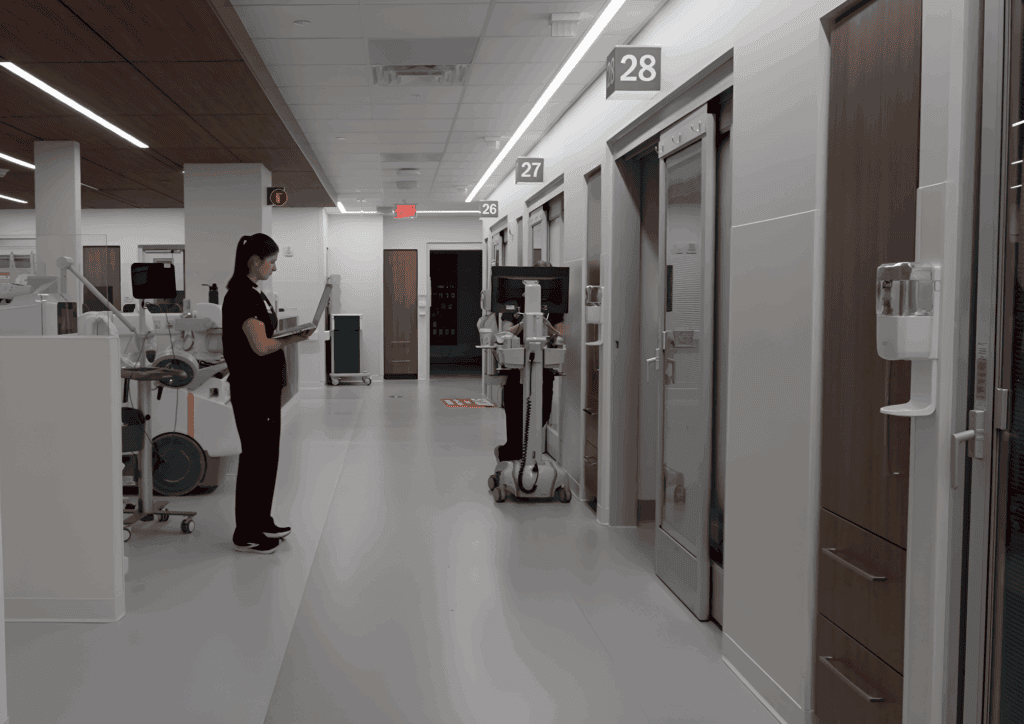
“Patients were sicker and needed more hospitalized care, so it is ever changing, and we’re continuing to try to adapt to those [changes],” he said. “And, with our [focus on] foresight, we’re trying to make sure we are staying ahead of the curve.”
Lucca said the number of beds at Aspirus Wausau Hospital’s ED nearly doubled with the opening of its expanded facility – helping the hospital address the area’s overall increased need for care, not just emergent care.
“The ER [emergency room] serves as a very large front door to a lot of people’s healthcare journeys,” he said, “and whether [their problem is] something that maybe could have [been] handled in a different setting, or a less urgent setting, nevertheless, our duty to our community and to our system is to be available.”
Lucca said the updated facility offers 30 beds, 12 of them being new; and two additional flex-rooms, making six total for the hospital.
“All six of those rooms are pretty flexible, [so they] could all essentially be trauma rooms if they needed to be, [or] they could all be critical care rooms,” he said. “They could also be an average ER patient room if needed. So, it was just trying to make sure we had a good ratio of that size room and the equipment needed in those rooms to take on additional traumas and additional critical care patients.”
The new facility is also furnished with upgraded technology that Lucca said assists his staff in providing the highest level of care possible.
“We set up a lot of the infrastructure to better equip us for the future,” he said. “We have also gotten new machines – new ultrasound machines, new Belmont rapid infusers and stuff like that. So, there are a lot of things we upgraded along with the expansion so that we had the latest and greatest of that kind of equipment.”
Because the ED often serves as the initial contact point for a patient’s healthcare journey, Lucca said having the most up-to-date resources available is paramount to the staff’s ability to care for them and was an important consideration in the department’s expansion.
“We wanted to make sure we had the resources up front to be able to take care of that person at the very first part of their journey, and then from there – whether it’s admission or discharge or referrals or whatever that process is – we wanted to be available for whatever comes up in our patients’ lives,” he said. “We do try and make sure people are using emergency care appropriately – and that’s for their efficiencies, for our efficiencies and overall cost of health care – but we are here, 24/7, 365 [days a year], and our goal is to make sure we’re here to serve our community.”
Commitment to community
Calling on “the old ‘Field of Dreams’ adage, ‘if you build it, they will come,’” Lucca said Aspirus Wausau Hospital’s ED leadership recognizes the need for more staff to support its anticipated increase in patients.
“As an ED leadership team, as a hospital, we continuously evaluate the trends we have [found in the area] census and make sure we’ve got the appropriate staff to address the influx of ER care and ER patients,” he said.
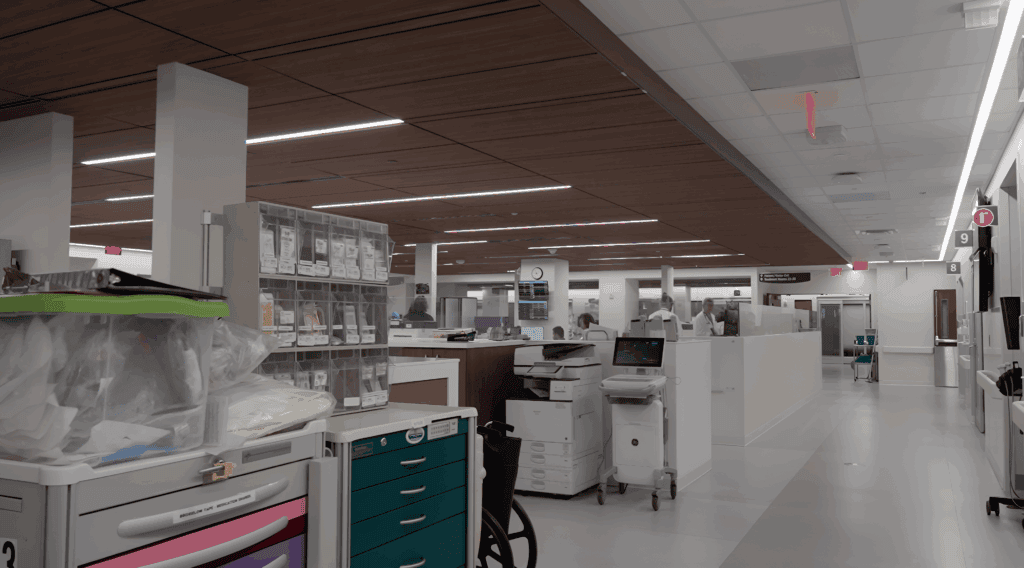
Recognizing the seasonality of patient influxes, Lucca said there’s also a challenge in ensuring the hospital doesn’t hire and schedule too many staff.
“There are time-of-day trends and stuff like that, [which] we try to look at to make sure the resources we’re putting in are appropriate for the task at hand,” he said. “Our goal is to stay ahead of that and make sure we’ve got the staffing resources along with that growth.”
The pandemic, Lucca said, changed a lot of the dynamics within the healthcare job market.
“We obviously have our core staff who are Aspirus-employed, but we do leverage contract and agency staff [to make] sure we have the staffing resources needed to take care of our patients,” he said. “But our contingency plan here is that if we can’t find the staff in an immediate sense, it’s our leadership – myself, my manager, my supervisor – [stepping in] alongside [our staff] to make sure we’re supporting our teams.”
That commitment to top-down teamwork, Lucca said, is one of the reasons he’s stayed with Aspirus, specifically at its Wausau Hospital.
“We’re very servant-leadership-driven,” he said. “To me, that’s one of the biggest reasons I stay with Aspirus – that commitment to our patients and our teams that a lot of our leaders have. I think it’s really important, and [it] should be our guiding principle.”
And it’s the leadership’s commitment to not only their work community, but the greater community of Wausau and North Central Wisconsin, Lucca said, that continues to increase access to quality health care in the region.
“There is a growing need for emergency services and care, and as we continue to serve rural communities throughout all of North Central Wisconsin into Minnesota [and] Michigan, we really are trying to be strategic [in] how we take on that volume of patients that seems to be growing,” he said. “We’re trying to do everything we can to support the communities with our expansion projects and everything we do, from an Aspirus standpoint, is with that in mind – how do we serve the community and the regions better?”
For more on Aspirus Wausau Hospital and its forthcoming projects, visit aspirus.org.
 Badger State tourism reaches new heights in 2023
Badger State tourism reaches new heights in 2023 Oshkosh Celebration of Lights + EAA = Win-win partnership
Oshkosh Celebration of Lights + EAA = Win-win partnership


